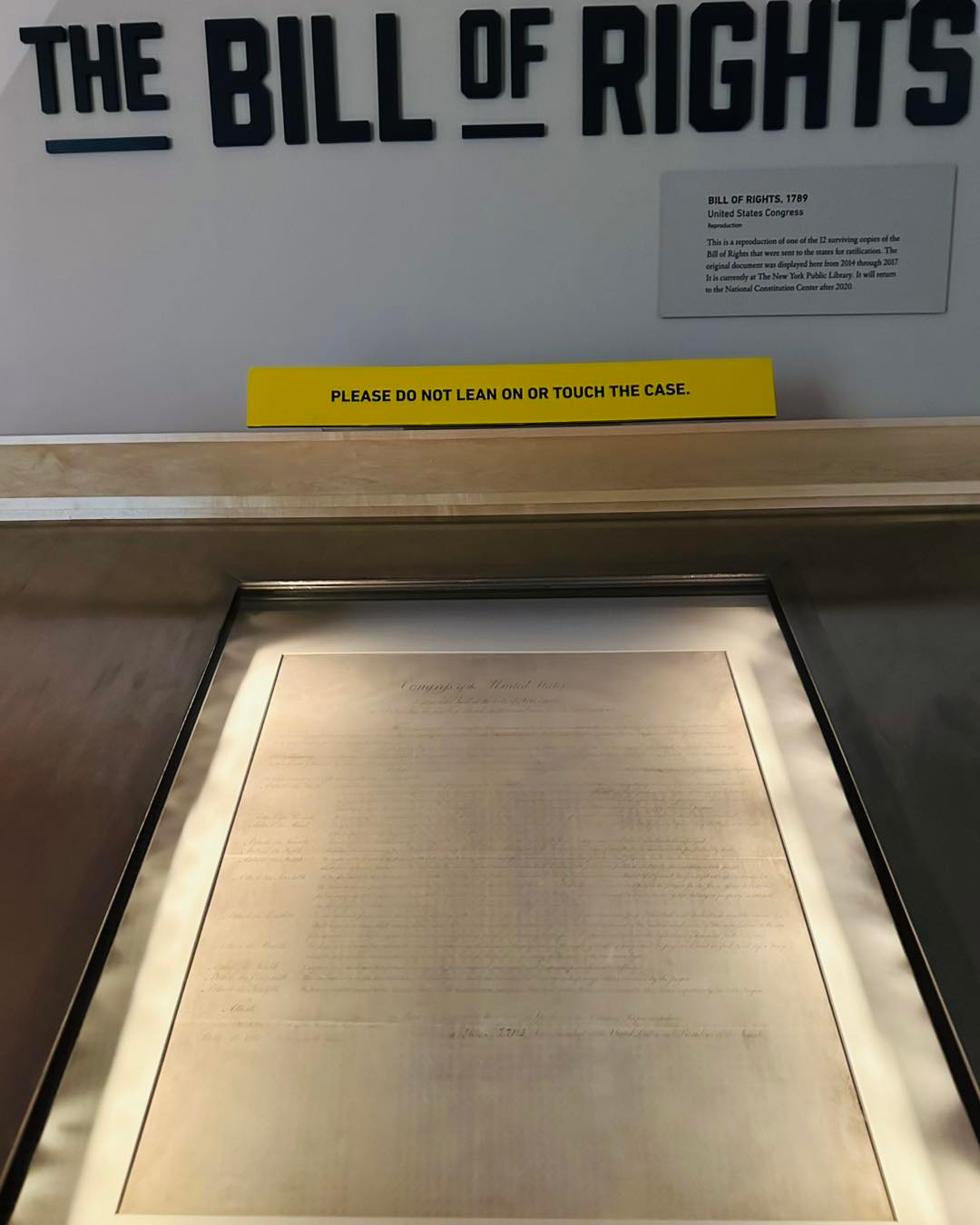Although Thomas Jefferson did not write the Constitution or the Bill of Rights, he played a pivotal role in influencing his best friend and political partner, James Madison, in the creation of the Virginia Plan of the Constitution and supporting a Bill of Rights. Jefferson, a keen student of history, saw an endless litany of abuses of power by government over the people and believed that a written Bill of Rights must be included in the Constitution. In a letter to Edward Rutledge, a signer of the Declaration of Independence and member of the Continental Congress, on July 18, 1788, he writes, “Our government wanted bracing. Still we must take care not to run from one extreme to another; not to brace too high. I join those in opinion who think a bill of rights necessary.” In essence, he knew the Articles of Confederation, our first government, needed bolstering, but feared a government that did not protect the peoples’ rights.
Although Jefferson was in France during the Constitutional Convention and would not return until September of 1789, he played a pivotal role in supporting the Anti-Federalist idea that a Bill of Rights must be amended to the Constitution. Madison, although the Father of the Constitution, will be influenced by Jefferson to craft a Bill of Rights, which will become the first ten Amendments to the Constitution, enshrining individual liberties and placing individual rights at the core of the American experiment in self-government. ![]()
![]()
![]()



No responses yet